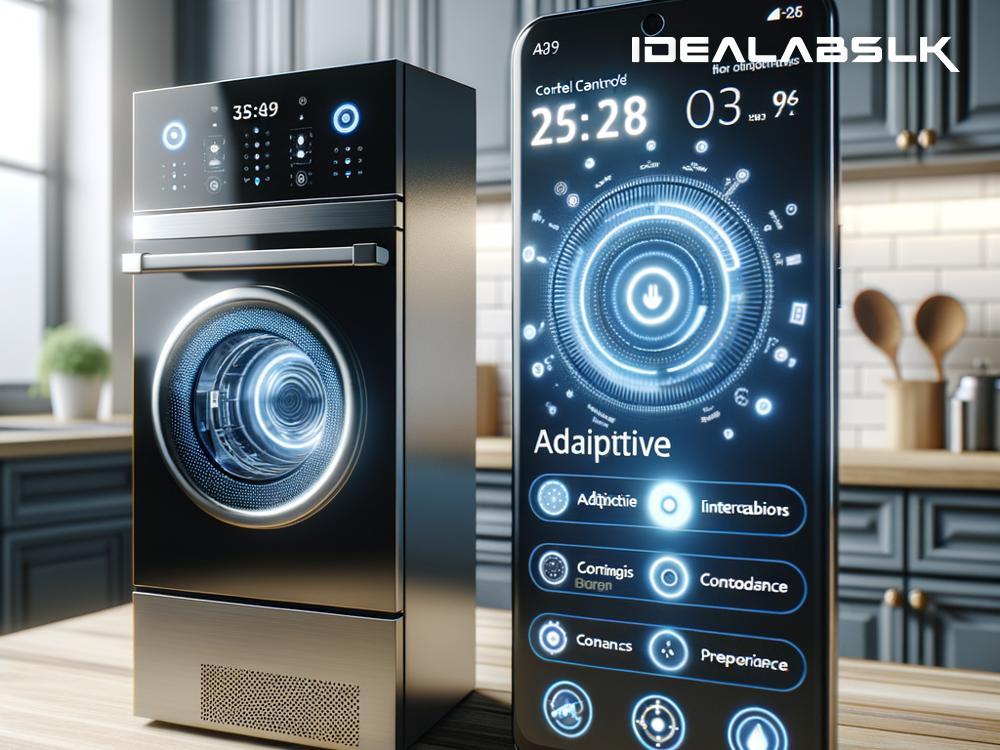Unraveling How AI Powers Adaptive Control Systems in Smart Appliances
Imagine living in a home where your devices adapt to your needs without you having to manually adjust them every time. Welcome to the world of smart appliances powered by Artificial Intelligence (AI) in adaptive control systems. But how exactly does this magic happen? Let's dive into the fascinating world of AI and its role in making our appliances smarter and our lives easier.
The Heartbeat of Smart Appliances: Adaptive Control Systems
At the core of every smart appliance, whether it's your fridge, air conditioner, or washing machine, there's what we call an adaptive control system. This system is like the brain of the appliance, continuously learning and adjusting to your habits and preferences. Imagine your air conditioner automatically knowing when to cool down your room or your fridge adjusting its temperature based on how full it is. That's adaptive control in action.
The Role of AI: The Smart Brain Behind the Scenes
AI is the brilliant mind that powers these adaptive control systems. It's what enables your appliances to learn from your habits and make decisions on their own. But how does AI do this?
Learning from Data: The First Step
AI works by learning from data. Every time you use a smart appliance, it collects data about your preferences and habits. For instance, what time you prefer to do your laundry or the specific temperature you like your room to be at. This data acts as a learning material for the AI.
Making Sense of the Data: The Analysis
Once it has collected enough data, AI starts finding patterns and making sense of your habits. It employs algorithms - sets of rules and calculations - to analyze this data. This process is akin to piecing together a puzzle; each piece of data is a clue to understanding your preferences better.
Decision Making: Putting Analysis into Action
After analyzing the data, AI is now ready to make decisions on its own. For instance, if it's learned that you usually come home at 6 PM and prefer your room to be cool, the AI in your smart air conditioner can start cooling the room at 5:45 PM. This decision-making process is what makes adaptive control systems so effective - they can adjust the appliance's operation to suit your habits without you needing to lift a finger.
Continuous Learning: The Never-Ending Improvement Process
The beauty of AI in adaptive control systems is that it never stops learning. Even after it has made a decision, it continues to collect and analyze new data. This means that your smart appliances keep getting smarter, continually adapting to changes in your life and habits.
The Magic of AI in Everyday Life
The incorporation of AI in adaptive control systems has transformed ordinary appliances into intelligent companions that anticipate our needs. Here are a few examples of how AI-driven adaptive control systems impact our daily lives:
-
Smart Thermostats: These devices can learn your schedule and temperature preferences, adjusting the heating or cooling of your home for optimal comfort and energy efficiency.
-
Intelligent Refrigerators: Imagine a fridge that can monitor its contents and adjust its temperature to keep food fresher longer. It can even notify you when you're running low on certain items.
-
Automated Washing Machines: These not only choose the best wash cycle based on the laundry load but can also start at the most energy-efficient times, thanks to AI understanding your schedule and the grid's energy demand.
The Future is Smart
As AI technology continues to advance, the potential for smarter, more adaptive appliances is limitless. From ovens that can automatically adjust cooking times and temperatures based on the dish you're preparing, to robotic vacuum cleaners that know the best time to clean based on your schedule, the future of home appliances is exciting.
Simplifying Life, One Smart Appliance at a Time
In essence, AI's role in adaptive control systems for smart appliances is all about simplification. By automating decisions and adjustments, these intelligent systems are making our appliances more efficient, personalized, and convenient. The goal is simple: to create homes that adapt to our needs, making our lives easier and more comfortable. As AI continues to evolve, who knows what other conveniences await us in the not-so-distant future? One thing is for sure: the era of smart living is just beginning.

